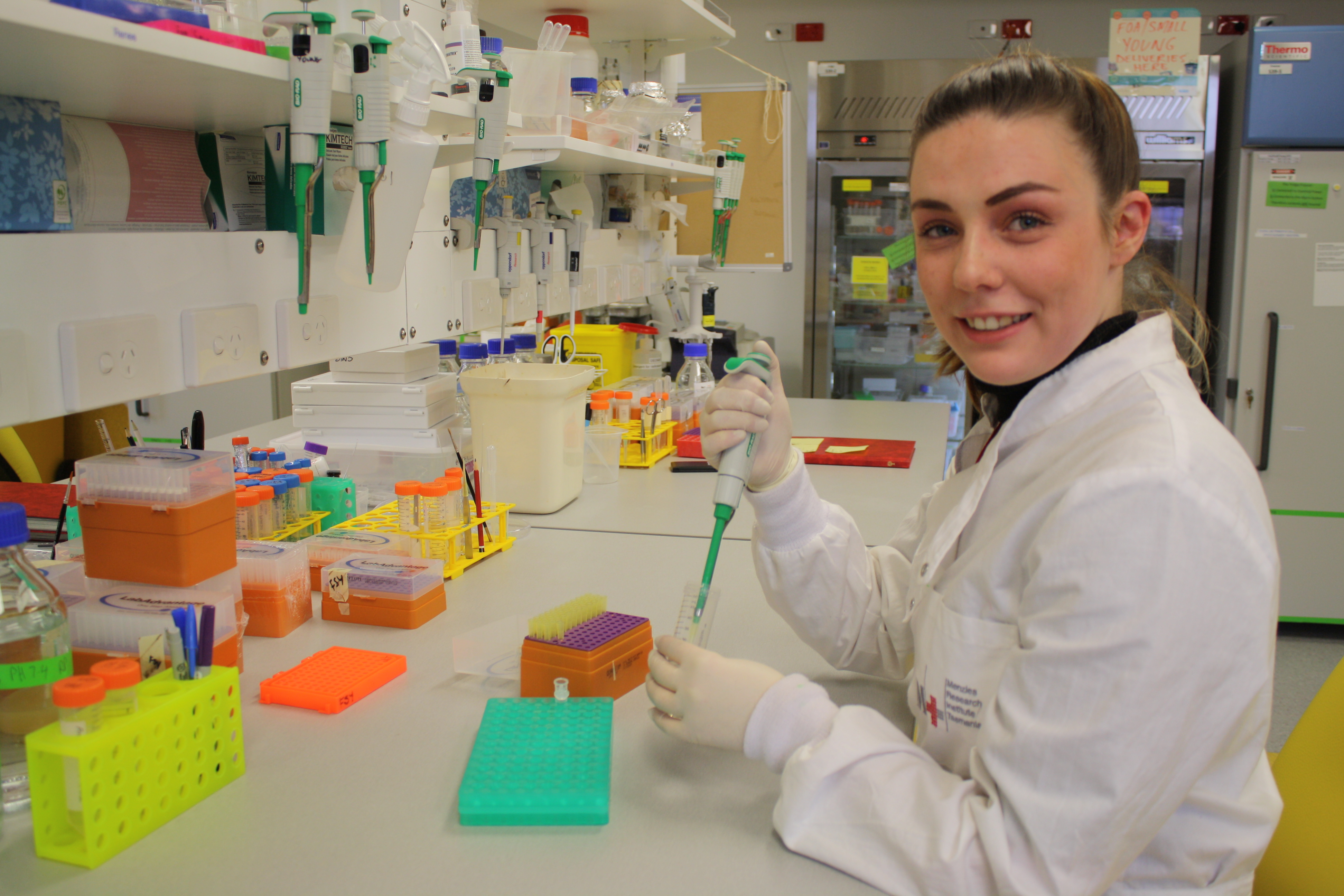
Renee Pepper
Medical Research PhD Student
Menzies Institute for Medical Research
University of Tasmania
I promise I am not as creepy as my intro line makes me sound. Though I do enjoy the odd scary movie, the reason I like fear is because of how it changes our brains.
Fear is a natural part of everybody’s life, it is an important survival mechanism that we have in order to protect ourselves. Fear is what lets us know that we should be careful, that maybe we shouldn’t play with that snake or muck around near the edge of a cliff. But what happens when fear takes over our brain?
This is what happens when people develop Post-Traumatic Stress Disorder (PTSD). People with PTSD have often had a bad experience which causes them to have great fear of perhaps a place or sound. People with PTSD can have a very hard time living their normal everyday life, because some everyday tasks which seem easy to us may cause them large distress.
The research I do looks at the changes that happen in the brain when someone has PTSD, and how these changes make it hard for people to recover from PTSD. I am interested in the cells in our brain that produce myelin, a substance that helps with the movement of signals between different areas of the brain. I am also looking at the fear centre of our brain called the amygdala, and whether myelin has a role in causing it to grow in size and strength in people with PTSD.
Find out more: www.menzies.utas.edu.au/